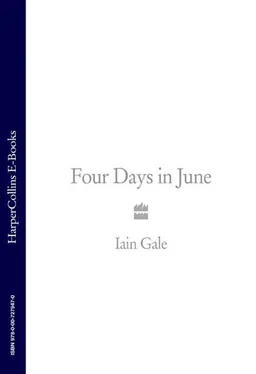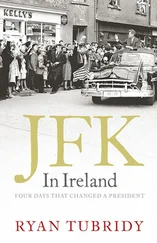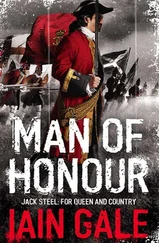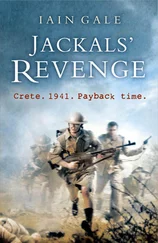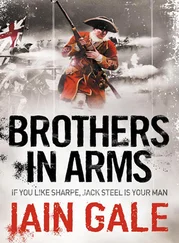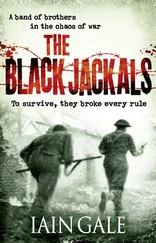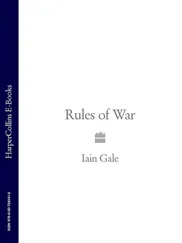1 ...6 7 8 10 11 12 ...19 ‘My thoughts exactly. Thank you. Join us?’
Local wine. Thin and lacking substance. What he would give for a good glass of Calvados. Noticing a flute hanging on the wall, he turned to his nervous host.
‘You play?’
‘A little, sir. When I have the time.’
‘I too. When I have the time.’
He laughed and thought again of home. Of Aglaé at the piano and of himself struggling with the flute. He thought of her sweet voice. Her taste for Italian arias. Don Giovanni . That divine duet – ‘ La ciderem lamano ’. He began to hum the melody.
Dumont’s house, he thought, was the epitome of petit-bourgeois – safe, dependable. And now, as Ney relaxed into a reverie, it took him back further to another, similar household, many years before. To a cosy parlour in the Saar where a father, a barrel-cooper by trade, would speak in German and French of the virtues of France, the glory of battle. How he had been proud to fight for King Louis against the Prussians. An image came to him of a small boy, ruddy-faced and with bright blue eyes, who, having listened spellbound to tales of war, had pursued his dreams of glory into the Song of Roland , the tales of Charlemagne, his knights, another empire. An image of a hot-headed boy of eighteen who had gone against his father’s wishes and joined the army. The army of France in whose ranks his German accent had quickly disappeared and in whose service, in the uniform of a hussar, a quarter of a century ago, he had first ridden to glory. So long ago.
Mozart’s aria was going around and around in his head. So too was an unpleasant thought which had come to him as he ate. Why should the Nassauers have rejoined the main force? What if they were still there at the crossroads? What if the cavalry reports were muddled? It happened. Might they not mean that the enemy had left not Quatre-Bras – which he saw now was the key to the road, and the flank – but merely Frasnes? Looking out of the open window Ney saw that, although night had fallen, the street was still well illuminated by the cold light of a full moon. He stood up.
‘Heymes, my horse. We will ride to Quatre-Bras. I cannot rest until I see for myself our precise position.’
‘Sir, it’s dark. Surely?’
‘The moon will suffice. Monsieur Dumont, thank you for your hospitality. I believe that a bed has been arranged for me here? You are very kind. Madame.’ Giving a quick bow he left the house.
Outside, with Heymes and the two aides, Ney mounted his waiting horse. With a small escort, found grudgingly by a half-troop of the First Chasseurs, they rode in silence the few kilometres to the crossroads. At Frasnes Ney caught the familiar stench of a recent battle – putrefaction and powder-smoke. Trotting along the street they passed occasional groups of Garde cavalry – chasseurs and lancers – some snatching what sleep they could, others eating, drinking, talking. The marshal and his party went unremarked.
It was ten o’clock when they reached the French advance lines, to be greeted by a single sentry and a somewhat startled Lieutenant of Lancers. Quickly the little group dismounted and walked towards the front. Through the darkness, across the fields, Ney could see the fires of the enemy pickets. He counted them. Swore quietly. No. The Nassauers had not left. Were still here. Encamped in fact, it seemed, in some force. To his left Ney could see the bulk of a large wood and in the centre and on the right the dim shapes of three sizeable complexes of farm buildings. The crossroads itself lay straight ahead. It looked, as he had supposed it might, ominously like a highly defensible position. He began to run through the dispositions of his troops.
‘Rollin, where is Bachelu’s division?’
‘Two kilometres to the east, at Mellet, sir.’
‘And Prince Jerome?’
‘Ransart, sir.’
‘And Piré’s cavalry?’
Another aide: ‘At Heppignies, sir.’
‘Count d’Erlon’s corps?’
‘His headquarters have been established at Jumet, sir.’ Rollin again. ‘But half of his divisions are strung out along the route, one at Marchienne, another at Thuin. Jacquinot’s cavalry we believe to be somewhere near Binche.’
Ney sighed. ‘And Reille?’
No one was entirely sure where the rest of Reille’s corps was. Ney swore again. Audibly now. He realized that he could not after all afford to rest. He would himself ride at once to Charleroi. Must attempt to glean more precise directions from the Emperor. Must be allowed to know more detail of his plans. His mind was addled, confused. The ride there and back would clear his head. Without a word, he walked back to his horse and remounted.
‘You have the time, Heymes?’
‘10.30, sir.’
It would be close to midnight before he reached Charleroi. It was going to be a long night.
FOUR
Brussels, 1.30 a.m. De Lancey
De Lancey sat at the unfamiliar bureau of his borrowed office in the house near the Parc and rubbed at his face and eyes. It had been a frantic evening. Unpleasantly warm for the time of year. At around nine o’clock a message had arrived from Blücher telling Wellington that he was now en route to Sombreffe and preparing to face Bonaparte there. Another came an hour later, from General Dörnberg, commander of the Hanoverian cavalry and senior intelligence officer at Mons. Still nothing though from Grant. Dörnberg reported that there were no enemy directly before him. In his opinion the entire French army was now focused on Charleroi. But surely, thought De Lancey, this was old news? The French might by now be long past Charleroi. In effect they were, all of them, chasing shadows.
Wellington, however, had at last seemed sure that he knew what Napoleon intended. Shortly after ten he had sent for De Lancey and given his ‘after orders’ – a common practice. De Lancey had found the Peer in blue velvet carpet slippers, a silk dressing-gown over his shirt, preparing for the ball already in progress in the Rue de la Blanchisserie. The Richmonds had taken a house in the Rue des Cindres and in this small street to the rear the Duchess had found the perfect venue for their dance – the workshops of a coach-builder. That afternoon the old carriage works had been cleaned by a fatigue party of defaulters and decked out with all the frivolity of an English village fête. Reports of the spectacle had been coming to De Lancey for the past two hours as his officers, beginning to return from their various dispatch rides, had managed brief sorties to the gilded assembly. No sooner had they gone though than he had been compelled to summon them back to deliver these fresh orders personally.
The ‘after orders’ were clear enough: The 3rd Division would continue from Braine-le-Comte to Nivelles. The 1st Division, the Guards, was to move at once from Enghien to Braine-le-Comte. The 2nd and 4th Divisions were to move to Enghien, as was the cavalry.
De Lancey detected a general sense of urgency, but realized that the Peer remained convinced that the real French threat was to his right wing. He was pondering the probability of this when, quite unannounced, out of breath and without knocking, Will Cameron burst into the room.
‘What the deuce? Will?’
‘Sir. More intelligence. I come directly from the ball. From Lord Wellington himself. The French have taken Charleroi, sir. Even now are marching on Brussels. Their pickets have been at Quatre-Bras. The message was timed at 10.30, sir. It comes direct from General Rebecque. The Peer has left the dancing, sir. We are to order a general state of readiness.’
‘What news from Grant?’
‘None, sir. Only this from Rebecque. And direct from the front. The ball is finished, sir. Officers are to return to their units. We are to prepare to advance.’
Читать дальше
